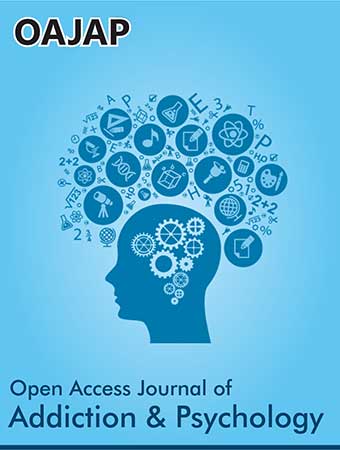 Research Article
Research Article
Emotional Intelligence of Incarcerated Populations as Measured by The Rorschach Inkblot Technique
Ashley Ginter1*, Stephen E Berger2, Bina Parekh3 and Albert Miranda4
1Federal Bureau of Prisons, USA
2The Chicago School of Professional Psychology, USA
3The Chicago School of Professional Psychology, USA
4Cultural Neuropsychology Program, Hispanic Neuropsychiatric Center of Excellence, UCLA Semel Institute for Neuroscience and Human Behavior, USA
Ashley Ginter, Federal Bureau of Prisons, USA.
Received Date: January 01, 2020; Published Date: January 22, 2020
Abstract
present study was designed to address two specific goals. The first was to analyze the differences between incarcerated and non-incarcerated individuals regarding their scores on specific Rorschach variables that are associated with emotional intelligence (EI). The second was to investigate the differences in scores on Rorschach variables reflecting emotional responsiveness (CF+C, MC-PPD) and emotional management (CF+C/SumC, M-, H, and PHR) among different levels of intellectual ability for both the incarcerated and outpatient samples. The study involved an examination of archival data from incarcerated individuals receiving mental health services and individuals receiving mental health services at a community clinic. Findings indicated there was a significant difference in CF+C/SumC scores between the different levels of care and incarceration status. These results indicate those who are not incarcerated likely have more adaptive emotion management skills to manage internal and external emotionally toned stimuli in comparison to those who are incarcerated, particularly incarcerated individuals who need the highest level of mental health care. Further, the results indicated participants’ responses on the emotional management/human interaction variables (i.e., CF+C/SumC and PHR) were able to significantly classify their incarceration status, with an overall correct classification of 63.3%. Future research is needed to better understand the relationships between incarceration status and EI abilities. Utilizing the Rorschach as a Measurement of the Emotional Intelligence of Incarcerated Populations.
-
Ashley Ginter, Stephen E Berger, Bina Parekh, Albert Miranda. Emotional Intelligence of Incarcerated Populations as Measured by The Rorschach Inkblot Technique. Open Access J Addict & Psychol. 3(2): 2020. OAJAP.MS.ID.000559.





